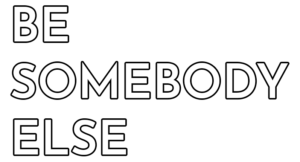by Tom Tomaszewski | Mar 27, 2024 | Be Somebody Else, HELPLESSNESS, MONOTONY
Does your mind turn angrily to things you wish you could forget? It’s as if someone’s turned the heat up too high; a kind of friction with the past. These things seem to hang around waiting for an opportunity to get noticed. Maybe a small thing occurs and suddenly you’re back with them, all over again. (more…)
by Tom Tomaszewski | Mar 20, 2024 | Be Somebody Else, FRUSTRATION
I’ve written about being at the centre of your own solar system somewhere else, but a talk I listened to at the weekend made me think about it again. Think about the relationships in your life and how intensely you’d cling on to whatever they contain. That clinging involves the stuff of Panksepp’s emotional instincts. Life, it seems, depends on how we respond affectively, our emotions guiding our thoughts towards ‘what supports out survival and detracts from our survival’. (more…)
by Tom Tomaszewski | Mar 6, 2024 | ALIENATION, DESOLATION, FRUSTRATION, HELPLESSNESS, HESITATION, INEXPERIENCE, MONOTONY
Insight and information can help you avoid repeating past ways of feeling, thinking and acting. You need to protect your capacity to think with that information, rather than to remember it. Your capacity to think freely is what will keep you safe and doing life the way you want.
Here are three things that you can do three times each day which will help prevent your body from becoming overloaded by negative intensity… worries, resentments and so on … the kinds of thing that will leave you stuck. causes a loss, sometimes a radical loss, of momentum. These three things promote positive intensity: the joy of being able to feel relaxed and thoughtful, the pleasure of being in harmony with your life, and the ability to start and stop things when you need to.
Box Breathing
Experiment with different amounts of time for the in-breath, pause and out-breath to see what suits you most for a situation. Box breathing is something you can always turn to discreetly
Don’t get taken for a ride
Stop being taken for a ride. Go and see films specifically to explore whether staying watching them or leaving is the best option. After you leave you need to be able to tell someone why you left. How long can you stay before you’re confident the film is not going to deliver what you need? You can experiment like this with any kind of experience, really. Always hold a place for your right to leave, work out how to do this in ways that feel right for you and others (ie storming out might not be the best option – quietly departing might be instead. Do you really want to make a point? What will the effect of that be on?
Instant sound bath
Buy a tuning fork or two and sound these close to your ear for an instant experience of being present in the world, connected to something outside of you that leaves you feel grounded in yourself.
by Tom Tomaszewski | Mar 3, 2024 | HESITATION

HESITATION / PANIC
People who have been traumatised might tolerate things well. Their instinct for how long to stick with a difficulty or how much to absorb its effects (often complication, anxiety and irritation) may be just about right. On the other hand they are likely to have tolerance problems. They’ll panic and have faith, hope and trust in nobody and nothing, or in anyone and everything.
Faith, hope and trust
Someone once wrote to me: ‘faith, hope, trust’. They weren’t writing about anything in particular, just offering me three words. These are three words that traumatised people might long to invest thought and feeling in. To have faith, to hope and to have trust. Whatever’s happened to you I imagine it’s messed with your sense of these qualities, ones that are fundamental to relationships. Without faith, hope and trust, what’s a relationship?
Try having no faith, hope or trust
Yes, try it. It’s almost impossible, but what emerges is still worth embracing because of what might emerge from that faulty, incomplete but nonetheless un-clinging place. To have faith, hope and trust is to cling on. Imre Hermann writes about a ‘clinging’ instinct that involves the kind of PANIC that Panksepp writes about and his version of attachment theory gives us clues about how to find faith, hope and trust.
You need to find faith, hope and trust
Faith, hope and trust need to develop out of a sense of need, not to be served up on a plate. Faith, hope and trust served up on a plate usually ends up tasting awful. So after you try to have no faith, hope and trust see what cooks up. You are far less likely to be disappointed and PANIC.
Disappointment and tolerance
Trusting a sense of faith in someone or something can lead to the end of hope, not the beginning. Hopelessness usually arises out of idealisation and over-valuation (or other ways of valuing, not least undervaluing, which is different from not valuing.
Refuse faith, hope and trust
Maybe the best you can do is to refuse faith, hope and trust until you find that refusal leads to you being offered something else. The pain that comes from losing these qualities, from feeling abandoned or let down is something a traumatised person has already experienced – radically. You don’t want it to happen again.
What else?
You don’t know until it is there. But you will know that whatever arrives, maybe the possibility of a relationship or some other form of security feels real. Refusing faith, hope and trust will make reality dawn on you. At some point you step into something like daylight. This is real. Whatever’s real you can do something with – anything unreal will amount to nothing. Remember, feelings are real. Words do things, as AJ Austin wrote. Faith, hope and trust are keys to living well.


